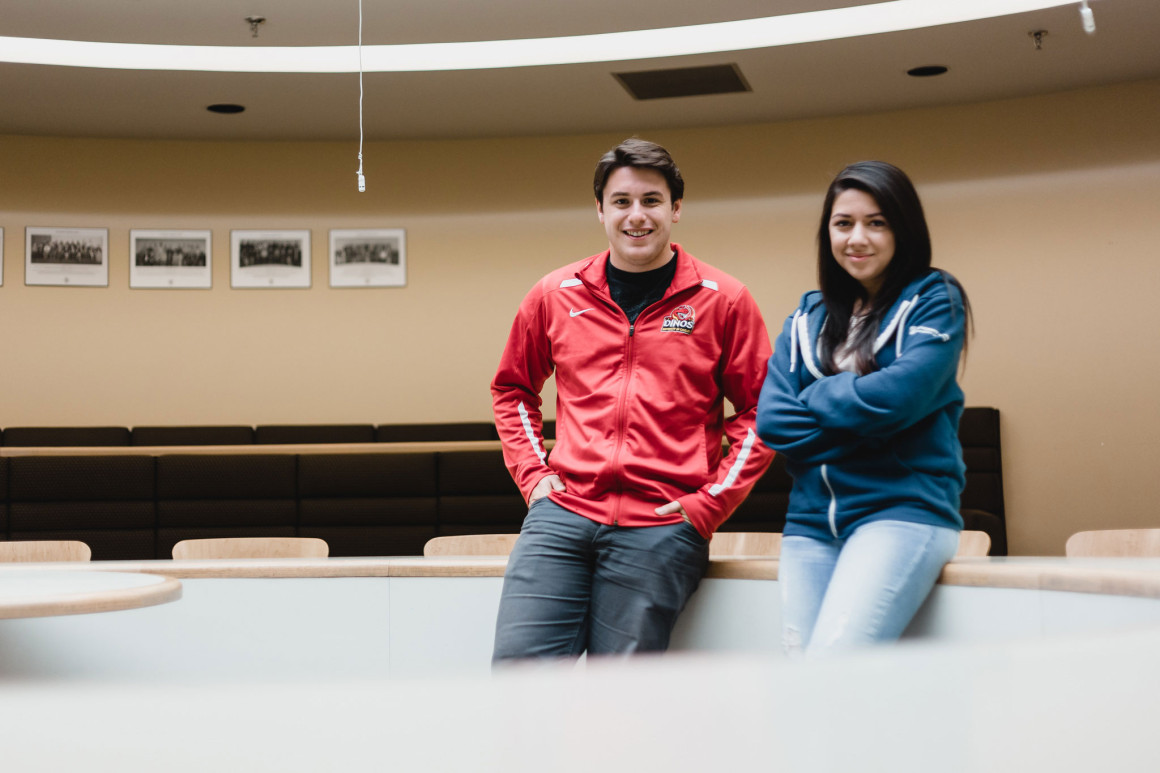
Student council to open meetings with Treaty 7 land recognition
By Fabian Mayer, September 3 2015 —
The Students’ Union has voted unanimously to begin all of their council meetings with a statement recognizing that they take place on traditional aboriginal territory.
The policy proposal was developed by SU president Levi Nilson and vice-president external Romy Garrido. Garrido said many of Canada’s public institutions begin meetings with similar statements.
“The goal was to fall in alignment with other governing bodies as it is an established practice. It’s a show of respect. It’s a symbolic gesture,” Garrido said. “We saw it as a right fit for us as a public institution operating on Treaty 7 territory.”
The speaker will read the statement at the start of each council meeting. A longer statement naming each of the first nations tribes that make up Treaty 7 will be read at the first meeting of each trimester. The abridged text reads as follows:
“We would like to acknowledge that the University of Calgary and this meeting of the Students’ Union is taking place on the traditional territories of the people of the Treaty 7 region in southern Alberta.”
Garrido said the idea was developed through consultation with the Native Centre and is part of the SU’s response to the findings of the Truth and Reconciliation Commission’s (TRC) report on residential schools released in June of this year.
Garrido believes aboriginal issues are becoming more prominent, especially the impact of past government policies on the aboriginal community.
“The reason why we as a students’ union have taken this upon ourselves to discuss is because those impacts are still being seen through post-secondary education,” Garrido said.
Gabrielle Lindstrom teaches courses on indigenous issues at the U of C and is from the Blackfoot nation. While she sees the steps the SU is taking as generally positive, she has mixed feelings on the issue.
“I have a lot of reservations honouring and acknowledging treaty because my direct experience with treaty has not been good, and treaty rights continue to be eroded,” Lindstrom said.
She argues that the history of treaties is not positive and that focusing on them is the wrong approach.
“It would be better if there was an acknowledgement that went beyond treaty and acknowledged the actual traditional lands of whatever first nation it is that whatever city is on,” Lindstrom said.
Lindstrom believes Canada’s long and controversial history with aboriginal peoples continues to impact relationships today.
“Sometimes in the spirit of good intentions we often lose sight of these larger issues,” Lindstrom said.
Garrido acknowledged that the gesture is purely symbolic and highlighted the advocacy work the SU does on issues such as post-secondary accessibility for aboriginal students.
“In no way are we saying that this is going to solve the issues,” Garrido said. “But we do realize that it’s a great way to start a conversation and students are going to be more aware of the issue.”
According to Garrido, the SU has also been conducting broader discussions on other ways to respond to the TRC’s report.
“When it comes to underrepresented groups on campus as a whole we want to continue to do that work.”
